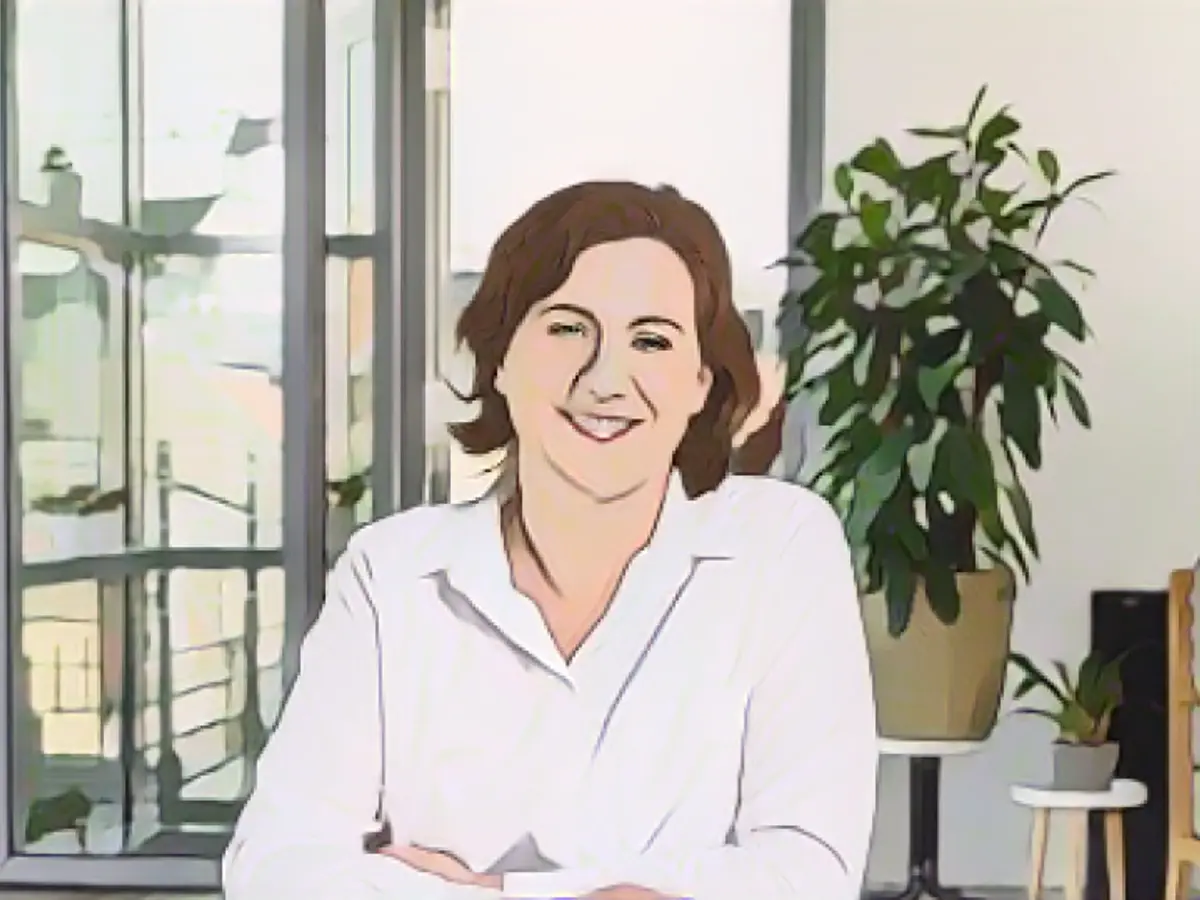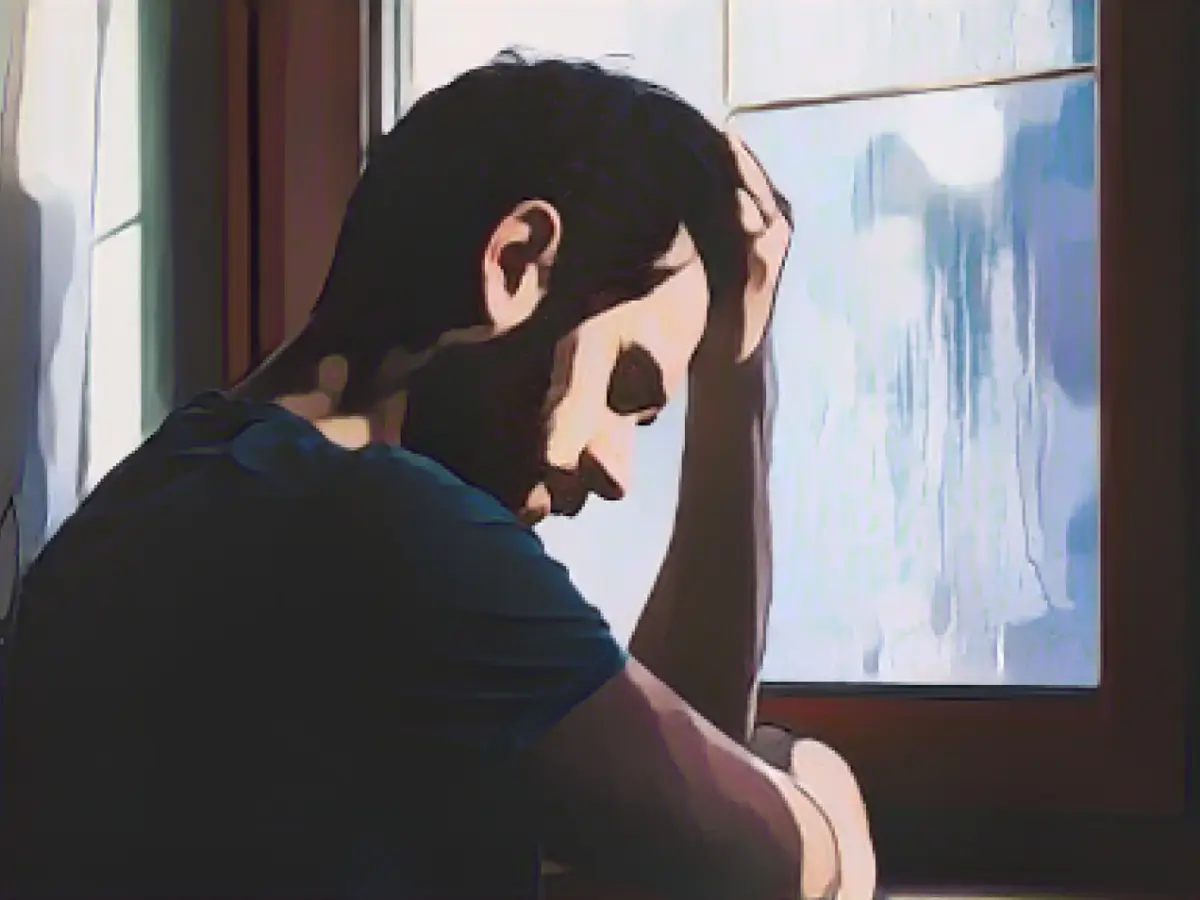Ways out of the crisis - Winter depression: HelloBetter founder on the limits and opportunities of online psychotherapy
Through your platform, you regularly come into contact with people who are struggling with mental health problems, Dr. Hanne Horvath. Have you noticed a change in the number of users in recent months?
Dr. Hanne Horvath: Our patient numbers have risen sharply in recent years. On the one hand, this is certainly due to the fact that we have become better known. But of course it's also because demand has increased enormously. The advantage of our digital program is of course that patients can get started straight away and thus bridge the waiting time for a therapy place. Our medical products are like an interactive online course in which participants answer many questions and exercises in writing, among other things. We can really see that topics such as the war play a role for people. But the dark season and loneliness are also often addressed.
Let's stay with the dark season. Why is it that we are more prone to mental problems in the fall and winter?
The darkness plays a role here. When it's dark outside, our brain releases different hormones. When our body is preparing for tiredness, for example, it produces fewer happiness hormones, which we then lack. So light is definitely good for our mood. However, I'm pretty sure that the cause of the so-called winter blues is more complex. For example, many people are less active in the cold half of the year than in spring and summer. And activities such as sport or meeting friends are a great stabilizer for mental health. It is not for nothing that positive activities are central to many therapeutic procedures, including within our medical products.

Ways out of winter depression
Do you have any tips for people who are now realizing: I'm less active, would like to change that, but don't really know how to go about it?
I don't have to do the same things I did in the summer. In the end, it's really just about getting active. Just knowing that activity is linked to mental health often leads to a more conscious approach. Even if you don't necessarily feel like it, you're more likely to do it anyway. And this "nevertheless" is the point. With mental health problems in particular, I have to keep up a behavior for a while until I feel like it. For example, I can go for a walk or make a phone call at any time of year.
Apart from activities, are there any other ways to prevent winter depression?
I would really recommend everyone to take part in a prevention program. We and many other providers offer this digitally and it is now covered by most health insurance companies. I learn a lot about mental health, stress management and emotion regulation in these courses. These techniques can save you from a major slump. It might not sound like a lot of fun at first, but it's really important.
Unfortunately, there are many people for whom prevention is too late. They are currently waiting for a place in therapy with a mental illness - for up to six months. How can this waiting time be put to good use?
Most sufferers only realize that they need help after several years. So they wait a very long time before they confide in a doctor. Digital health applications are therefore actually more attractive for many because they are immediately available and can therefore not only bridge the waiting time, but in some cases even replace entire therapies. What's more, most of our patients don't actually undergo any other psychotherapy after completing one of our programs.
How online psychotherapy works
In your online courses, participants have a psychotherapist who supervises them via the Internet. However, the relationship between therapist and patient is still considered essential in psychotherapy. Isn't something missing for you then?
I think it depends on the needs of the person concerned. There are people who need a face-to-face conversation. That's perfectly okay. There is also this kind of contact as part of our courses: users receive written feedback from therapists. We have been researching and developing our solutions for over ten years and can clearly see that our concept works - over 30 scientific studies prove this. The so-called therapeutic alliance can also develop via our platform, as we have seen in studies. In other words, the bond is there - but it is certainly different than when therapist and patient sit in the same room. But what works above all are the psychotherapeutic methods. You shouldn't think of our courses as a translation of traditional psychotherapy.
How exactly does online psychotherapy work in comparison to traditional therapy?
With us, participants log in and then actively work through their program over several weeks. There are various modules that they then work through on a weekly basis. For example, they watch videos, write something down or do exercises. These are all psychotherapeutic methods that would also be used in traditional therapy. Just on their own initiative. Participants are also given information on topics relating to mental health. So they always know why they are doing something and what it is doing for them.
Online therapy is now standardized. Every participant goes through the same program. How individual can such psychotherapy be?
That's a point of criticism I often hear. When we ask our patients, we usually get the feedback that they experience the program as very individual. The topics, thoughts and feelings that you bring to the program make it a unique journey for everyone. Ultimately, we guide people to reflect on their own lives.
What can online psychotherapy do that normal therapy cannot?
The great opportunity of digital psychotherapy is that we can reach people much earlier in the course of their illness. Namely at the point where they still want to get back on their feet under their own steam. Many people don't want to undergo psychotherapy because they would rather solve their problems on their own instead of seeking help from doctors or psychotherapists. With our services, we can therefore prevent many illnesses from becoming chronic.
The digital future of psychotherapy
Artificial intelligence and digitalization offer many opportunities. How do you think these will change psychotherapy in general in the future?
The key word here is "in the long term". We can already see that even after ten years and a number of studies, it is still hard work to get a medical product like this into healthcare. And we have not yet included artificial intelligence. But in ten or twenty years' time, innovative technologies like these will play a major role. We can already see that voice recognition can be used to diagnose depression more quickly. However, it will still take some time before this reaches practices. The future of psychotherapy is also digital. Not only, but also.
You say it takes time - what's the problem?
Changes always take a little time, as we regularly see with the development and adoption of vaccines. Nevertheless, I am convinced that every politician should push for online therapy because it could prevent a lot of suffering and close gaps. After all, mental illnesses still remain largely untreated.
Read also:
- 80 percent of young Germans eat sustainably
- Syphilis cases in babies are increasing dramatically
- Syphilis cases in babies are increasing dramatically
- Corona or flu epidemic? These pathogens are making us cough and sniffle right now
- Dr. Hanne Horvath has noticed an increase in users seeking help for mental health issues on her platform, especially during the winter months, due to factors like increased demand and longer waiting times for therapy places.
- The dark season and loneliness are often mentioned by patients seeking help for winter depression, and activities such as sports and meeting friends can help to improve mental health.
- Many people find it difficult to maintain their mental health during the winter months due to reduced outdoor light, less activity, and fewer opportunities for social interaction.
- Online therapy and prevention programs can be effective ways to address winter depression and prevent more severe mental health issues, and digital health applications can be particularly useful for people who are waiting for a therapy place.
Source: www.stern.de








